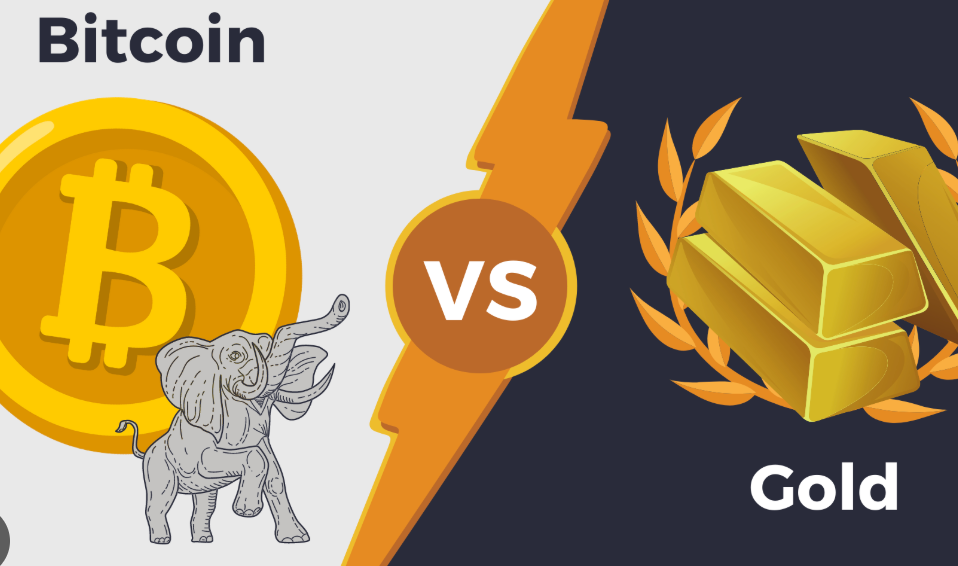Weekly Institutional Insights: Apple exemptions send crypto higher; Bitcoin’s role to challenge gold
Apr 14, 2025: Our weekly Institutional Insights explores the latest market developments — market performance, industry news, exchange-traded fund (ETF) flows, trending topics, upcoming events and token unlocks — to help you supercharge your crypto trading.
Enjoy our weekly take on the market!
Weekly highlight — Apple exemptions send crypto higher
US president Donald Trump’s administration recently exempted smartphones, computers and other electronics from reciprocal tariffs, providing significant relief for major technology manufacturers like Apple and NVIDIA. This move, announced by US Customs and Border Protection, limits the impact of Trump’s 125% tariff on goods from China and baseline 10% global tariff affecting many countries.
The exclusions cover popular electronics, such as smartphones, laptops, hard drives and memory chips, typically not domestically produced. This decision is welcome news for consumers who feared rising prices due to potential tariffs. It also benefits major tech companies that have made substantial investment pledges in the US domestic markets to the Trump administration.
The tariff reprieve marks a noteworthy easing in Trump's trade conflict with China, effective retroactively from April 5. White House Press Secretary Karoline Leavitt emphasized that America must not depend upon China for critical technologies, highlighting the president's efforts to secure substantial investments from leading tech firms to bolster domestic manufacturing.
However, the reprieve may be temporary. The exclusions stem from an initial order designed to prevent cumulative tariffs on specific sectors. While certain semiconductor manufacturing equipment is excluded, the announcement doesn’t cover the 20% tariff targeting China, aimed at addressing fentanyl shipments.
Analysts note that while this exemption is a win for the tech industry, uncertainty remains regarding future tariffs. The administration is poised to further investigate semiconductor imports, potentially leading to new tariffs in the coming weeks. As negotiations evolve, other countries may seek similar exceptions, complicating the trade landscape.
Overall, while this announcement offers temporary relief, the future of tariffs remains uncertain as the administration continues its aggressive trade policies.
Weekly crypto highlight — Bitcoin has its role to play amid volatility
The concept of "safe haven" assets, traditionally represented by gold and government bonds, is being challenged in today’s volatile markets. For decades, investors relied on a classic portfolio structure of 60% equities and 40% bonds, with capital flowing into gold and government bonds during market downturns. These assets were seen as stable and reliable, ideal for safeguarding against volatility. However, in a world marked by constant market activity, geopolitical unrest and rising skepticism toward governments, the definition of a safe-haven asset may require reevaluation.
Enter Bitcoin, a highly volatile and often misunderstood asset. Despite skepticism from many investors, Bitcoin has significantly outperformed traditional safe-haven assets since the COVID-19 market lows, rising over 1,000% since March 2020. In contrast, long-duration bonds have dropped by 50%, and gold, while up 90% over five years, appears less impressive when adjusted for monetary inflation.
However, Bitcoin's status as a safe haven remains debated. During various risk-off events, it’s behaved more like a high-beta asset than a protective hedge. For instance, in March 2020, BTC fell 40%, while the Nasdaq-100 dropped 27%. But during the recent tariff-led sell-off in April 2025, Bitcoin held up better than the Nasdaq-100, suggesting emerging strength.
Non-sovereign assets like Bitcoin could thrive amid geopolitical tensions, given their decentralized, censorship-resistant nature. Traditional safe havens like gold and long-duration bonds are losing their luster, with gold’s gains overshadowed by monetary expansion and rising yields on Treasury bonds.
As Bitcoin continues to demonstrate resilience, it may challenge the notion of what constitutes a safe haven. While it may not fit the classic definition of a low-volatility asset, its durability, neutrality and liquidity make it increasingly relevant in today’s financial landscape. Thus, the traditional playbook for safe-haven assets may need an update.
Other top-performing tokens
Token | Catalyst |
Ethereum (ETH) | ETH was up 13.5% following the SEC's approval of options trading for Spot Ether ETFs, boosting institutional interest. Read more here. |
Neo (GAS) | GAS was up 25.3% after Inflectiv's integration with Neo X to power AI-driven DApps with decentralized datasets. Read more here. |
Bittensor (TAO) | TAO was up 17.2%. Read more here. |

